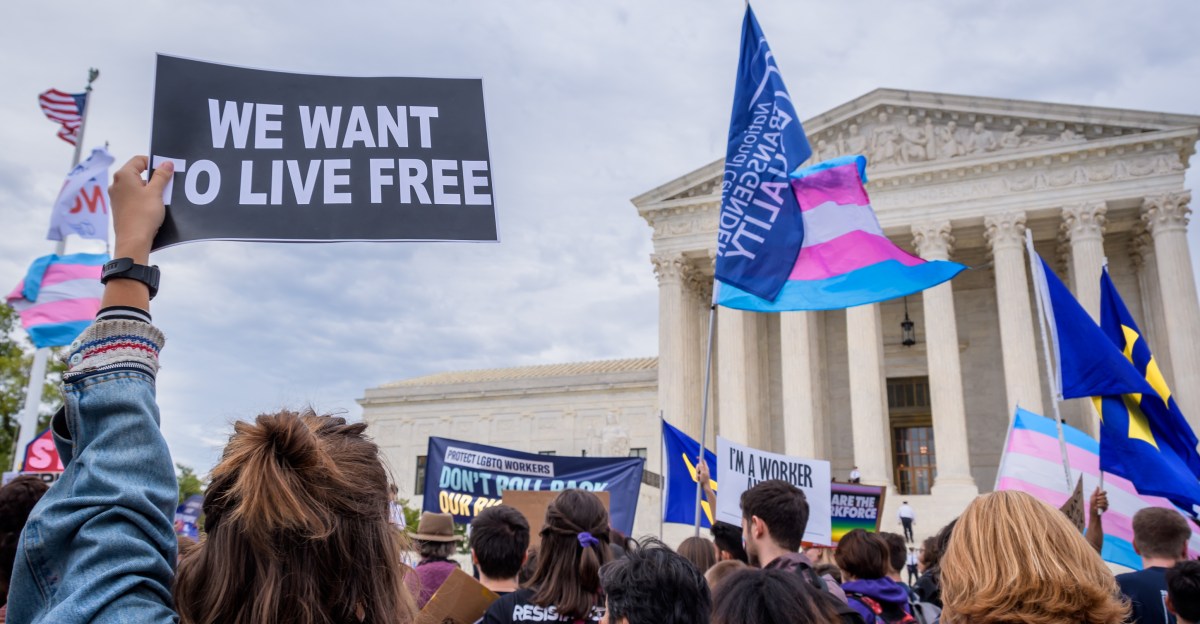Now Reading: The Supreme Court stands up for democracy — and for an anti-trans lawmaker
-
01
The Supreme Court stands up for democracy — and for an anti-trans lawmaker
The Supreme Court stands up for democracy — and for an anti-trans lawmaker

The Supreme Court made a decision in the case of Libby v. Fecteau, involving an anti-trans lawmaker, with most justices agreeing to temporarily lift sanctions against the lawmaker. Maine Republican Rep. Laurel Libby had been sanctioned by her colleagues for sharing a photo of a transgender high school athlete along with her name and school to protest transgender girls participating in women’s sports.
The sanctions imposed on Libby were questioned for potentially violating her constitutional rights, as they restricted her voting rights in the state House, thereby depriving her constituents of representation. The case drew parallels to Bond v. Floyd (1966), involving a Georgia lawmaker prevented from taking his seat due to his stance against the Vietnam War. The First Amendment was cited in both cases, emphasizing the importance of legislators expressing their views freely.
While the situations of Bond and Libby are different, the protection of offensive speech under the First Amendment was highlighted. Libby’s refusal to apologize for her actions led to the censure by the state House, affecting her participation in legislative matters. The Supreme Court’s decision to reinstate Libby’s floor privileges was brief, with Justice Sonia Sotomayor dissenting without explanation.
Justice Ketanji Brown Jackson criticized the overuse of the Court’s “shadow docket,” where emergency motions are decided without full briefing. She argued for more cautious use of this docket, noting changes in the Court’s practices over time. Regardless of the Court’s swift action in this case, the importance of ensuring representation for constituents and protecting legislators’ rights was underscored.



